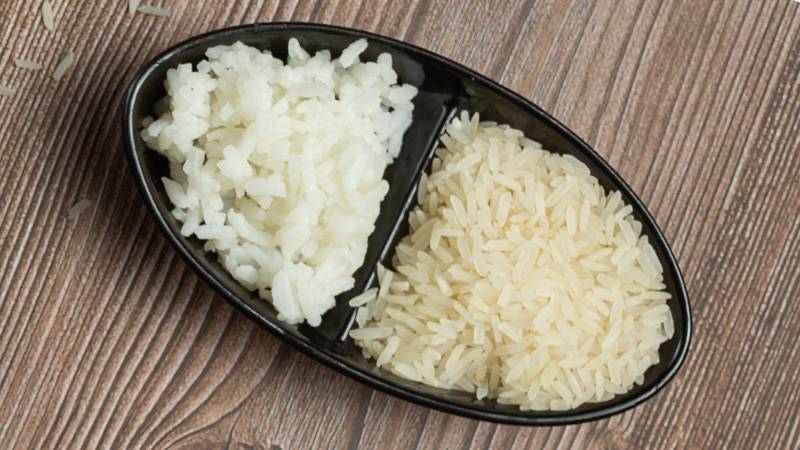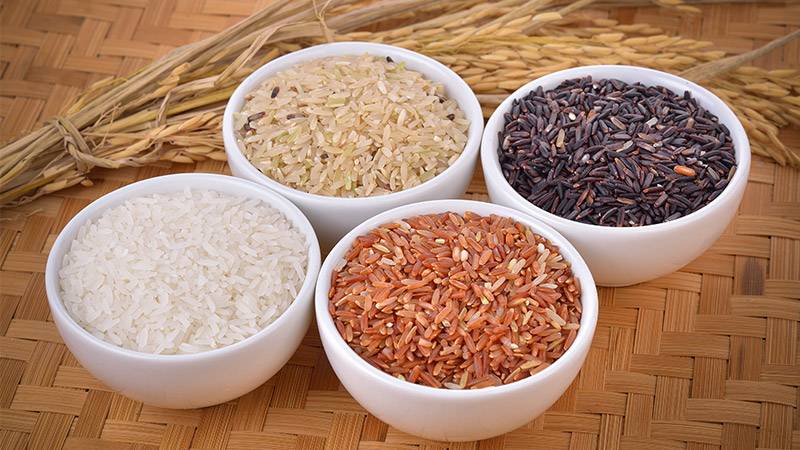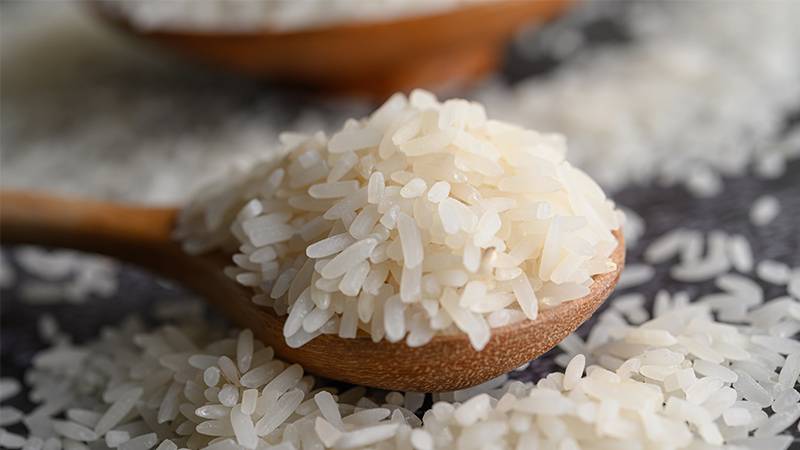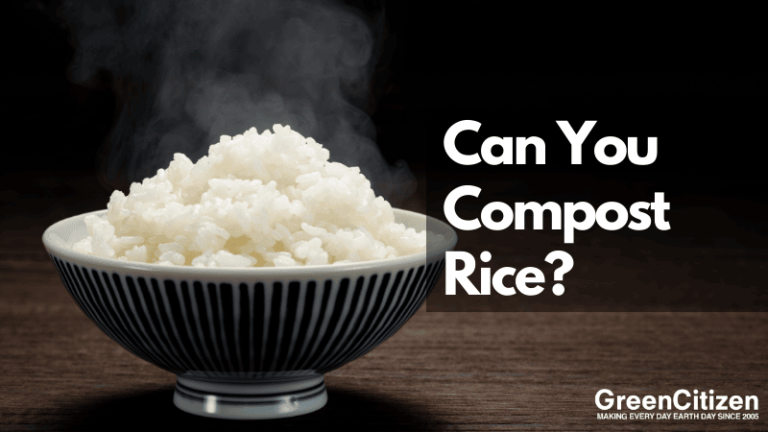Ah, the age-old composting conundrum: can you toss that rice into the compost bin? Let’s cut to the chase – yes, you absolutely can compost rice. However, like all good things in life, there’s a bit more to it than simply tossing those grains onto your compost heap and hoping for the best.
For many of us starting our composting journeys, rice can seem like a puzzling ingredient. But fret not! Dive in with me as we explore the intricacies of composting this staple, ensuring you get it right the first time around.
Can You Compost Rice?
Rice is an organic material, and like most organic substances, it has the inherent ability to decompose naturally over time. The process involves microorganisms breaking down rice grains into simpler compounds, returning vital nutrients to the soil.
While rice’s decomposition is influenced by moisture, temperature, and other compost ingredients, its organic nature means it’s biodegradable. Hence, it can be successfully composted.
However, the method and time it takes for rice to decompose in a compost pile may vary based on conditions and whether it’s cooked or uncooked, but its compostability is a given.
Cooked vs. Uncooked: Which Rice Can Go in The Compost?

When diving into composting basics, it’s essential to recognize the distinctions between the types of ingredients you’re adding. Rice, being a staple in many households, often leaves us with the question: should we compost cooked or uncooked rice, or perhaps both?
Uncooked rice, or raw grains as some might refer, can go straight into your compost. They’re akin to other raw organic materials and, over time, will naturally decompose. The challenge with uncooked rice, though, is its longer decomposition period compared to softer organic matter. But with a balanced compost bin, rich in both nitrogen and carbon sources, it’s entirely manageable.
Cooked rice, on the other hand, is a different ball game. Once rice is cooked, it becomes a soft, moist ingredient that can attract pests. Plus, cooked rice in compost can lead to mold formation if not managed properly. Despite these challenges, it’s still compostable. The key lies in ensuring adequate aeration and layering it with other compost materials, like brown compost materials, to offset its moisture content.
In essence, both cooked and uncooked rice have their place in the composting world. But as with all composting endeavors, it’s about understanding the dynamics and making informed decisions to maintain a healthy compost balance.
The Challenges with Composting Rice

Composting rice, whether it’s a fragrant jasmine variety or robust brown rice, comes with its own set of challenges that every composter, beginner or seasoned, should be aware of. Let’s delve into some of these concerns.
One of the primary challenges faced when adding rice to compost is mold growth. Rice, especially when cooked, retains moisture, creating a perfect environment for mold to thrive if the compost’s moisture management isn’t up to par. The softer, moist nature of cooked rice can also make your compost bin a magnet for pests. From curious rodents to smaller critters, they’re all drawn to that starchy feast!
Then there’s the matter of rice varieties. The spectrum ranges from the commonly known white and brown rice to the less common black or wild rice. Each has its own composting dynamics. For instance, brown rice, being less processed, may decompose slightly quicker than its polished white counterpart. However, this isn’t a steadfast rule, as compost balance and conditions can influence the decomposition rate of rice varieties.
6 Ways to Compost Rice
When it comes to composting rice, understanding the most effective methods is paramount to ensure success.
1. Maintain a Hot Compost Pile
One highly recommended approach is to maintain a hot compost pile. By ensuring a balance of nitrogen-rich green compost materials and carbon-rich brown compost materials, you can achieve rapid decomposition. The heat generated not only breaks down rice grains but also prevents unwanted mold and wards off pests.
2. Use a Worm Bin
Another efficient method is using a worm bin. Vermicomposting, employing the voracious appetites of red wiggler worms, can transform rice, especially the cooked kind, into nutrient-rich castings. However, it’s important to moderate the amount of rice given to worms to avoid issues like mold.
3. Use a Covered Bin
If you’re wary of pests, using a covered bin can be your best bet. Besides offering a defense against critters, it also protects the compost from excessive moisture, ensuring it doesn’t become a soggy mess.
4. Add Hydrated White Lime to Your Compost
For those battling the dual issues of pH imbalance and odors, adding hydrated white lime to your organic compost can be a game-changer. It not only maintains a neutral pH but also dramatically reduces mold chances.
5. Use a Bokashi Bin
Then there’s the bokashi bin, a unique anaerobic composting method. This approach swiftly breaks down rice and other kitchen scraps. The fermented output from a bokashi system can then be added to traditional composts or directly to garden soil for enriched results.
6. Send Rice to a Municipal Compost System
Lastly, if managing rice in your personal compost seems daunting, turning to a municipal compost system can offer relief. These setups, typically large-scale, utilize hot composting methods, ensuring rice is decomposed safely and efficiently.
Rice: Brown or Green Compost Ingredient?
The balance of carbon and nitrogen sources in compost is fundamental to its success. When incorporating rice, it’s crucial to categorize it correctly in this carbon-nitrogen dynamic.
Typically, uncooked rice is seen as a carbon source, landing it in the ‘brown’ category. Its starchy nature and minimal moisture content mirror characteristics of other brown compostables like dried leaves or cardboard.
On the flip side, cooked rice, given its moisture content and transformed state, tends to lean towards the ‘green’ or nitrogen-rich category, sharing attributes with fresh vegetable scraps or coffee grounds.
To maintain a harmonious compost balance, it’s essential to adjust other ingredients based on the type of rice added. If you’re tossing in uncooked rice, consider upping your green materials. Conversely, for cooked rice, bolster with more brown ingredients to absorb excess moisture and maintain equilibrium in your composting environment.
How Long Does It Take for Rice to Decompose?

The timeline for rice decomposition in compost is influenced by several factors, painting a dynamic picture for composting enthusiasts. Rice, being a staple in many diets, often sparks curiosity regarding its composting speed, and rightly so.
Firstly, the type of rice plays a part. Uncooked rice, with its hardy, starchy nature, tends to take longer—typically several months—to break down entirely in a well-maintained compost pile. Cooked rice, softened and laden with moisture, can decompose considerably faster, sometimes in just a few weeks under optimal conditions.
However, it’s not just the rice’s state that affects its decomposition rate. Factors such as the compost pile’s temperature, moisture levels, and aeration play pivotal roles. A hotter compost, rich in microbial activity, will expedite the process, turning rice into nutrient-rich humus faster. Conversely, cooler or poorly aerated piles might prolong the rice’s stay.
On average, when considering standard home composting practices and typical composting conditions, one can expect uncooked rice to decompose in 2-6 months, while cooked rice might take anywhere from 1-3 months. Still, remember, these are approximate timelines. Regular turning, balancing green and brown materials, and monitoring moisture can help optimize the decomposition process for your rice ingredients.
Precautions When Composting Rice
As enriching as rice can be for your compost, it does demand certain precautions. When not managed properly, rice can introduce challenges such as mold growth, pesky invaders, and unpleasant odors.
Mold Management
Mold typically thrives in damp, anaerobic conditions. If you’re adding a lot of cooked rice, it’s vital to counterbalance this moisture with dry, brown composting materials like leaves, straw, or cardboard. These not only absorb excess moisture but also introduce carbon to balance the nitrogen-rich cooked rice.
Pest Prevention
A pile rich in food scraps, especially starchy ones like rice, can be an all-you-can-eat buffet for pests. To deter these unwelcome visitors, ensure your compost bin has a tight-fitting lid and consider burying food scraps under a layer of yard waste or brown materials.
Odor Prevention
Bad smells usually signify anaerobic decomposition, a process that occurs when air circulation is insufficient. Regularly turning your compost ensures aeration, keeping those bad odors at bay. Furthermore, maintaining a balanced compost mixture can also prevent the formation of foul-smelling compounds.
Aeration and Moisture Management
These are the keystones of successful composting. An aerated pile encourages beneficial microbial activity, accelerating decomposition. Monitoring moisture levels, especially when adding wet ingredients like cooked rice, ensures that the pile remains damp but not soggy, optimizing conditions for decomposition.
Pros and Cons of Composting Rice
Like any composting ingredient, rice brings its set of benefits and challenges. For many gardeners and composting enthusiasts, understanding these can make a significant difference in achieving a healthy, thriving compost pile.
- Nutrient Enrichment: Rice, especially the uncooked variant, is packed with starch. As it breaks down, it releases these nutrients into the compost, enriching it and subsequently benefiting the plants that receive this compost.
- Moisture Management: In moderate amounts, cooked rice can assist in maintaining moisture within the compost pile. A damp environment is key for microbial activity, ensuring efficient decomposition.
- Waste Reduction: Composting rice is an eco-friendly way to reduce kitchen waste. Instead of sending it to landfills, where it produces methane, a potent greenhouse gas, composting turns it into a beneficial soil enhancer.
- Versatility: Both cooked and uncooked rice can be composted. With the right techniques, any rice leftover finds a sustainable end in the compost bin.
- Mold Growth: Due to its moisture retention capability, rice can sometimes encourage mold in the compost pile if not balanced with dry materials.
- Pest Attraction: Especially in the case of cooked rice, pests like rodents can be drawn to the compost bin, requiring preventive measures.
- Decomposition Duration: Uncooked rice can take longer to break down compared to other kitchen scraps, potentially delaying the readiness of the compost.
- Odor Issues: If rice is not aerated properly or if there's an imbalance in the compost ingredients, it can produce unpleasant odors.
Incorporating rice into your compost strategy can be immensely beneficial, but it demands a touch of care and attention. With the right balance and precautions, the pros can certainly outweigh the cons.
Conclusion
After two decades in the realm of composting, the question of “Can you compost rice?” has surfaced countless times in my journey. And the answer, as we’ve explored, is a resounding yes—with the right care.
My personal composting endeavors have taught me that rice, while a tad tricky, can be a valuable addition to the compost pile. Its challenges are not insurmountable, and the benefits it brings can be gratifying. To all the beginners out there, I encourage you to step into the world of rice composting with an informed perspective. And remember, every grain counts. So, why not start today?


